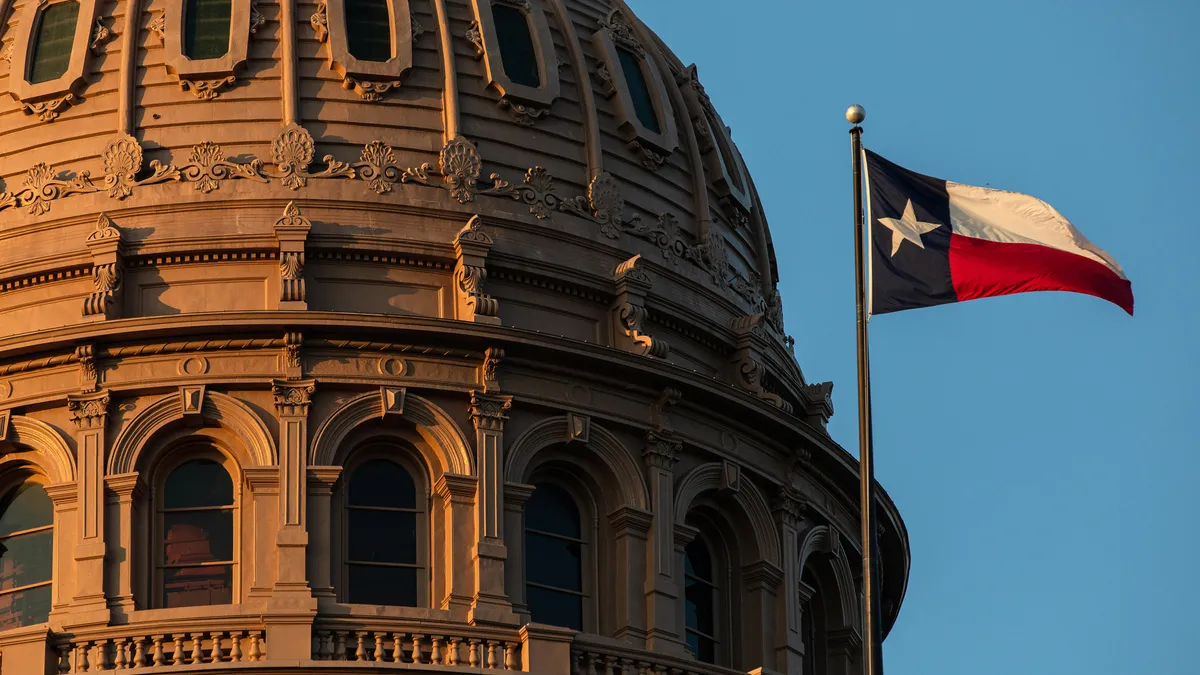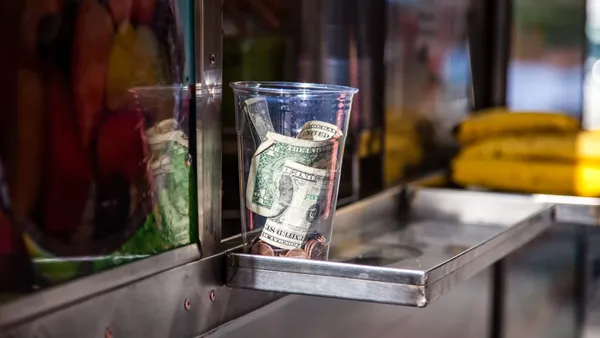Dive Brief:
- Texas Senate Bill 911 became law on Jan. 1, banning third-party delivery aggregators from using restaurant branding and trademarks to suggest restaurants endorse a service in a misleading fashion. The legislation also grants restaurants a path to legal and injunctive relief if aggregators violate the law.
- Under Texas SB 911, delivery firms are prohibited from charging fees to restaurants unless the restaurants have agreed to the fees in writing. The bill also requires third-party delivery firms to provide customers with a channel for complaints regarding orders placed with the aggregators. Delivery firms have 10 days to remove restaurants from their apps after operators request removal.
- The law attracted support from restaurants and delivery aggregators, according to a statement released by the Texas Restaurant Association on May 18, 2021, the day the bill passed the Texas House of Representatives. The bill could be a model for cooperation between restaurant groups and third-party delivery apps.
Dive Insight:
This Texas law is the latest in a string of legislation enacted across the country to curb delivery firms' power and protect restaurant operators from business practices that could hurt their bottom lines. SB 911 has a long arm, too — it bars municipalities in the Lone Star State from passing or enforcing laws that would impact the terms of agreements between restaurants and delivery aggregators so long as those agreements meet SB 911 standards.
It is unclear if this clause preempts cities from passing delivery fee caps or labor laws similar to what New York City and San Francisco have recently implemented. Both cities, which are major restaurant hubs, passed 15% delivery commission fee caps last summer. New York City also passed six bills in September related to delivery workers rights, including requirements for restaurants to provide delivery couriers access to bathrooms and minimums for delivery worker pay.
It's possible the Texas law would preclude municipal fee caps that would impact the terms of fee agreements between restaurants and delivery services.
"The Texas Restaurant Association (TRA) worked closely with DoorDash, Favor, Grubhub, Uber Eats, and other stakeholders to craft SB 911," according to the TRA's statement.
Chris Miller, senior manager of public policy for Texas at Uber, called the bill a "common sense approach to establish third-party food delivery regulations in Texas that will allow this emerging industry to continue to grow."
Texas SB 911 was signed by Greg Abbott last June, and took effect January 1.














